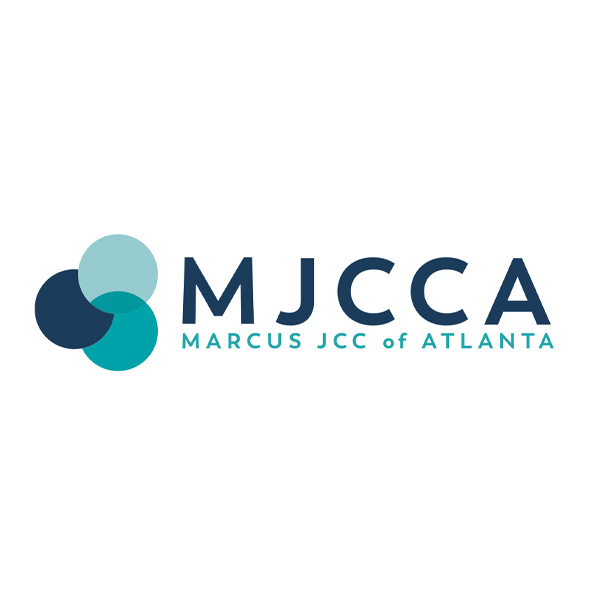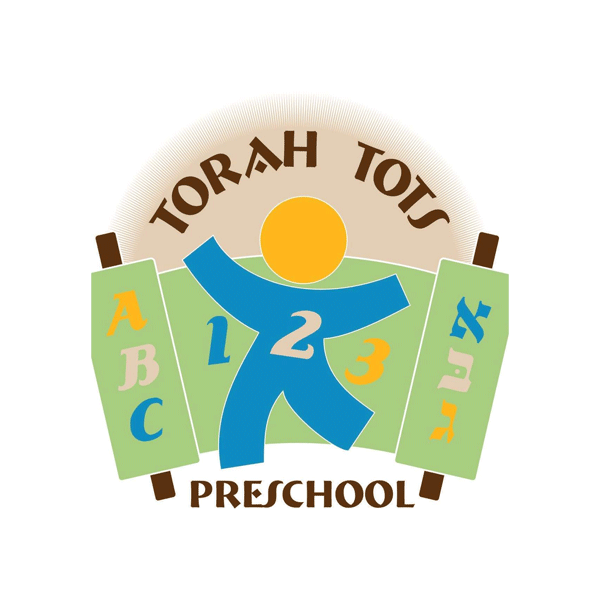
Jewish Education Tax Credit
Supporting Jewish Education in Georgia
The Jewish Education Tax Credit (formerly ALEF Fund) was established by the Jewish Federation of Greater Atlanta in 2008 in response to new state legislation when Georgia’s General Assembly passed the Education Expense Credit law to provide families in our state with access to better educational opportunities for their children. The JETC provides scholarships to pre-k, kindergarten, primary or secondary public school students who wish to attend participating Jewish private schools. It is the only organization in Georgia that provides student scholarships exclusively to Jewish preschools, day schools and high schools. Our guiding principle is to improve the affordability of Jewish education by awarding scholarship dollars to eligible students.
Jewish Education Tax Credit by the Numbers
$120M
in government funds available for SSOs
$36M+
in scholarship awarded since 2008
4,200+
Scholarship recipients
Partner Schools
About the JETC/GOAL Partnership
What is the relationship between JETC and the Georgia GOAL Scholarship Program?
Georgia GOAL, the largest student scholarship organization (SSO) in the state, administers the Education Expense Tax Credit on behalf of JETC. JETC no longer operates as a separate SSO; rather, JETC works with donors and Jewish preschools and day schools to promote use of the tax credit for Jewish education, and then the administration of the tax credits and the disbursements of scholarships are managed through GOAL.
What is the benefit of the JETC/GOAL partnership?
This partnership maximizes the benefit of the tax credit program for our Jewish preschools and day schools. JETC is focused on what it does best in terms of supporting Jewish education and fundraising, while allowing GOAL to use its expertise on the most efficient administration of the tax credit.
So am I donating to JETC or to GOAL?
Your donation will flow through GOAL. JETC no longer accepts contributions directly. JETC works with GOAL to ensure the donations for the JETC schools.
Can I still contribute to the JETC General Fund?
Yes. If you know what school(s) you want to benefit from your tax credit, you can designate your contribution. However, if you simply want your donation to make Jewish education more affordable, you can donate to the general fund and the leadership of JETC will allocate the dollars to those schools most in need of the scholarship dollars.
Where do I access my historical tax documents for JETC donations?
You will still be able to access your historical tax documents by calling someone at Federation to assist you. This will include your 2023 tax documents. For donations made in 2024 and beyond, your tax documents will come from Georgia GOAL and will be accessed through their site.
What if I want to donate to a Jewish school but I don't see them on the JETC list?
If you are trying to donate exclusively to a school that is not on the JETC list, contact that school and they will assist you. If you would like to allocate your donation to a JETC school and another school, you can do so through your application on the JETC/GOAL page.
For Taxpayers
What is the benefit of contributing to JETC?
By making a contribution, you can divert tax dollars to Jewish education. You will receive a dollar-for-dollar tax credit for the amount you contribute to JETC. The allowable contribution amounts are as follows:
Married filing jointly $5,000
Single $2,500
Married filing separately $2,500
Members of single or multi-member LLC’s, Partners in Partnerships, and Shareholders in S-corporations $25,000
Trusts and Estates can offset up to 75% of their State income tax
Partnerships and S-Corporations electing to pay Georgia income tax at the entity level, pluc C-corporations can offset up to 75% of their State income tax
Please note the following with respect to the $25,000 limit:
If the individual taxpayer is a member, partner, or shareholder in more than one pass through entity, the total credit allowed cannot exceed $10,000; The individual taxpayer decides which pass through entities to include when computing Georgia income for purposes of the qualified education expense credit. You can include those with income and exclude those with losses. You cannot include any pass-through entities that make an election to pay Georgia income tax at the entity level. All Georgia income, loss, and expense from the taxpayer selected pass-through entities will be combined to determine Georgia income for purposes of the qualified education expense credit. Such combined Georgia income shall be multiplied by the Georgia tax rate (5.75%) to determine the tax that was actually paid.
If the taxpayer is filing a joint return, the taxpayer’s spouse may also claim a credit for their ownership interests and shall separately be eligible for a credit resulting in a married couple filing jointly to contribute up to $20,000. The applications must be submitted separately. If the taxpayer(s) chooses to be preapproved under this option, they are not allowed the additional amounts normally allowed an individual. If the taxpayer is preapproved for an amount that exceeds the amount that is calculated as allowed when the return is filed, the excess amount cannot be claimed by the taxpayer and cannot be carried forward. The new limit will be reduced by any amounts previously approved.
Can I designate some or all of my contribution to a school represented by another SSO?
This partnership maximizes the benefit of the tax credit program for our Jewish preschools and day schools. JETC is focused on what it does best in terms of supporting Jewish education and fundraising, while allowing GOAL to use its expertise on the most efficient administration of the tax credit.
If I redirect some of my Georgia tax payments to JETC, can I designate the student who will benefit from the financial assistance?
No. Although a donor to JETC may designate a school, no designation of individual students is permitted. Per most recently amended legislation (HB 283): “(1) The tax credit shall not be allowed if the taxpayer designates the taxpayer’s qualified education expense for the direct benefit of any particular individual, whether or not such individual is a dependent of the taxpayer. (2) In soliciting contributions, a student scholarship organization shall not represent, or direct a qualified private school to represent, that, in exchange for contributing to the student scholarship organization, a taxpayer shall receive a scholarship for the direct benefit of any particular individual, whether or not such individual is a dependent of the taxpayer. The status as a student scholarship organization shall be revoked for any such organization which violates this paragraph.”
Can I change the designation of my contribution after I have completed the contribution process?
You are able to make changes to your pledge regarding amount and school designation up until the funds have been deposited into that school’s designated account.
How does a tax credit differ from a deduction?
A tax credit is significantly more beneficial than a deduction. A credit reduces your Georgia taxes dollar-for-dollar while a deduction reduces the taxable income upon which taxes are calculated. In the case of an entity making a contribution to the JETC, you may be able to get both a Federal tax deduction and a Georgia tax credit.
How do I know what my Georgia income tax liability is?
Your Georgia income tax liability is typically Georgia’s marginal tax rate (5.75% for 2021 & 2022) multiplied by your Adjusted Gross Income (AGI). If your income and deductions will not change much from the prior year, you can look at Line 16 of your Georgia income tax return (Form 500) for your income tax liability for the prior tax year and estimate your tax liability accordingly. Of course, only an accountant or other tax professional can provide you with a solid estimate of your upcoming Georgia income tax liability.
What if my Georgia income tax liability is less than the amount I contributed? Do I lose that money?
For taxpayers who contribute to JETC as individuals who are single, married filing separate, married filing jointly or on the entity level: no, you do not lose the money. The tax credit will apply toward your taxes for up to five future years. Taxpayers who contribute to JETC as owners of pass-through entities cannot carry-forward any education expense tax credits.
Why should I submit my application now?
The State has placed a yearly cap on the amount of credit available at $100 million. That means that every school, tax payer, and corporation in GA is drawing from the same exact pool of credits. Once the funds are used up, you will have to wait until next year to participate in the program. Once funds are deposited, they are immediately available to help families seeking an educational choice for their children. The yearly cap has more recently not been met on the first day of the year as in year’s past but this trend could change at any point in time.
When do I need to pay my approved tax credit?
Once your application is filed by the State, you will get a letter of approval from the Department of Revenue by mail, within 30 days of the filing. You have exactly 60 days from the date of approval to fund your JETC contribution.
You may pay by check, payable to JETC, or by credit card. Payment can be made online by credit card, or a check can be mailed.
Can I use a Donor Advised Fund (DAF) or IRA to make my JETC contributions?
No. A contribution from the Donor Advised Fund (DAF) or from and IRA may be accepted by the JETC since the JETC is a 501(c)3 organization. However, no tax credit and no charitable contribution deduction may be claimed for a contribution to the JETC that is made out of a Donor Advised Fund (DAF) or an IRA.
For CPAs
Which income can be included in the computation?
Income from the following sources is included in the computation:
- LLC’s, Partnerships and S-Corporations being taxed on your Georgia individual income tax return.
This includes self-employed taxpayers who file a Schedule C with their personal tax return. As long as the entity is legally formed as an LLC, then 100% of the earnings from this entity are included in the computation.
If income is reported as a sole proprietor on IRS Form Schedule C, can this income be included in the computation?
Only if the entity is legally organized as an LLC. You may consider establishing a Georgia LLC effective January 1 so this income can be included.
How does HB 149 affect my participation in the JETC?
For 2022 tax credit applications, JETC offers a brand-new benefit for pass-through businesses (Partner in a partnership and S-Corp only). A new ruling allows a SALT (state & local income tax) limit workaround, coupled with a more generous JETC tax credit opportunity, per Georgia HB 149.
Pass-through businesses may elect to pay state income tax at the entity level and may contribute to JETC at the same generous limits as C-Corporations, up to 75% of the entity’s Georgia income tax liability (effective beginning in 2022).
Please read HERE for more information. We recommend that you consult with your tax professional about this tax planning opportunity, as JETC does not provide tax advice.
Can I use a Donor Advised Fund to make my JETC contributions?
No. A Donor Advised Fund is a non-eligible entity. Only individuals, Partnerships, Trusts, S Corporations, and C Corporations are eligible to make contributions for the Georgia Qualified Education Expense Tax Credit. A contribution from the Donor Advised Fund may be accepted by the JETC since the ALEF Fund is a 501(c)(3) organization. However, no tax credit and no charitable contribution deduction may be claimed for a contribution to the JETC that is made out of a Donor Advised Fund.
Can I use an IRA to make my JETC contributions and receive a tax credit?
A tax credit is significantly more beneficial than a deduction. A credit reduces your Georgia taxes dollar-for-dollar while a deduction reduces the taxable income upon which taxes are calculated. In the case of an entity making a contribution to the JETC, you may be able to get both a Federal tax deduction and a Georgia tax credit.
If I am an owner of an LLC, Partnerships, or S Corporation what income can be considered in the computation?
All types of income items passed through to you on your K-1 PLUS other sources of income from the entity, such as wages. Income from entities that elect to pay an entity level Georgia income tax under HB 149 are excluded. When an entity level tax is elected under HB 149, the contribution must be made through the electing entity and not by the individual owner(s).
If I own an interest in multiple entities and some have losses and some have income, do I have to include all the entities?
No, you can pick and choose which entities to include in the calculation when you apply for the credit. Which entities you actually include are determined when you file your actual income tax return. You can choose the entity/entities which have profits, and exclude those with losses in the computation. You cannot include any entities that elect to pay an entity level Georgia income tax under HB 149 but such entities can make their own JETC contribution.
What if I have tax credits in excess of what I need for my upcoming tax return?
The individual credit limit of $1,000/$1,250/$2,500 annually can be carried forward for five years.
The flow-throw credit taking into consideration income from LLC’s, Partnerships, and S Corporations that do not make entity level tax election under HB 149 must be used in the current year. The State does not allow you to carry this credit forward to future years.
How do I know if I pay AMT?
For 2020, the AMT tax shows up on Line 41 from Schedule 2 of your 1040 tax return. If you are paying AMT, the amount will be reflected on this line.
Since AMT is no longer applicable for many taxpayers under the new Federal tax law, can participating in the JETC still reduce my Federal individual incometax liability?
Under the new Federal tax law, only taxpayers who have not reached the SALT cap of $10,000 will receive a tax savings benefit. Under the new Federal tax law, State and Local Tax (SALT) payments are now limited to a maximum deduction of $10,000. They are shown as an Itemized Deduction on IRS Form Schedule A to the extent an individual taxpayer itemizes deductions on their tax return and has not reached the $10,000 SALT cap, they may treat the state tax credit they receive for the JETC contribution as a SALT deduction on Schedule A.
Due to new IRS tax rule, contributions made after August 27, 2018 no longer receive a Federal tax deduction for donations to the extent you receive a state tax credit for such donation. As a result, if you itemize your deductions, contributions made to the JETC will not be allowed as a charitable tax deduction and you will not receive any Federal tax benefit unless you are under the $10,000 SALT cap. Similar to contributions made under previous tax law, the amount contributed can be used as a Georgia Income Tax Credit on your Georgia Income Tax Return.
Can participating in JETC reduce my Federal AMT?
No. Due to a new IRS tax rule, contributions made after August 27, 2018 no longer receive a Federal tax deduction for donations to the extent you receive a state tax credit for such donation. As a result, if you itemize your deductions, contributions made to the JETC will not be allowed as a charitable tax deduction and you will not receive any Federal tax benefit. Similar to contributions made under previous tax law, the amount contributed can be used as a Georgia Income Tax Credit on your Georgia Income Tax Return. As a result of the new proposed IRS tax rule, itemizing taxpayers subject to AMT tax or limited due to the $10,000 SALT deduction cap can no longer reduce their tax liability by shifting state taxes to charitable donations since the donation is no longer deductible under the new proposed IRS tax rule.
For a contribution made after August 27, 2018 will I pay more in tax than the tax benefit I receive from my JETC contribution?
For most taxpayers, the tax benefit will be equal to the amount contributed. While itemized taxpayers will no longer receive any Federal tax benefit for a charitable tax deduction, everyone will still get a dollar for dollar tax credit on your Georgia Income Tax return which thus reduces your Georgia Income Tax liability by the same amount you paid for the JETC contribution. This makes the contribution essentially similar to an estimated tax payment. As a result, for the large majority of taxpayers contributing to the JETC, there will be no net tax savings but there will also be no tax cost.
How do state tax credit limits affect me?
Under Georgia House Bill 217, the statewide limit for the Qualified Expense Tax Credit is increased from $58 Million to $100 Million. This increased credit cap is effective for tax years beginning on January 1, 2019 and ending on December 31, 2028. The tax credit cap goes back down to $58 Million beginning on January 1, 2029. These tax credits are approved on a first come, first served basis. In 2014, the credit cap was reached on January 22, 2014. From 2015 to 2018, the entire cap has been met on the very first business day of the year. In 2019, the cap was met by December, 2019. In 2020, the contributions were only $97m so the approved tax credits were just short of fully meeting the cap.
Even with the increased credit cap, the historical demand, plus the expected increased demand for tax benefits under the new tax law, it is possible that the pre-approved contributions for each year will exceed the cap. When taxpayer requests to Georgia for pre-approval of contributions exceed the annual credit caps, Georgia taxpayers are currently approved for a prorated percentage of their intended contribution amounts. For example, if Georgia pre-approves $200 Million for the 2022 education expense tax credits by January 3, 2022, taxpayer contributions will be prorated down to a proration percentage of 50% since the credit cap for 2022 is $100 Million. For 2019 through 2021, the cap has not been met, so 100% of pre-approved contributions have been available. However, it is hard to tell where the 2022 and future proration percentages will end up as a result of the new tax laws increasing demand for the Georgia education credit.


































